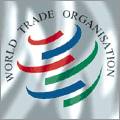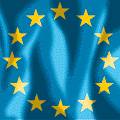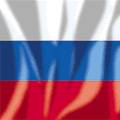
I. Overview
To access Items referred to in this memo, please click HERE
From: Simon Xi
ZHANG
To: Prof.Colin
PICKER
Date: January
30, 2002
Re: Russia's
accession into WTO (EU perspective &
Russian reaction)
Divided into three parts: Overview, EU's strategy & demand, and Russia's eagerness & concern.

I. Overview
USSR's earliest, and the only, effort in joining the GATT dated back to 1979 without achievement (See, Item #32, p.1, #21, p.1); the USSR Communist Party Politburo discussed GATT issue even much earlier, taking place in 1977 (#18, p.1).
Russian Federation applied to join the GATT in 1993 (#2, p.5, #5, p.2) and submitted accession request to WTO in 1995 (#23). Russia has persistently taken efforts in accession thereinto; President Vladimir Putin, in his "State of Union" speech, declared it be the "top priority" for Russian Government (#21, p.1, #22, p.2).
Russia's negotiation are mainly conducted with EU, US and WTO Working Group.
Russia submitted to the Working Group its first Service Schedule in October 1999 and a second (improved) Tariff Schedule in March 2000 (#2, p.5). Working Group and Russia met in December 1998, May 2000 (#2, p.5) and June 2001 (##19, 20), with the last one nearly coming to a stalement because of Working Group's head-strong demand that Russia had to bring all the existing laws to WTO standards before further negotiation could take place (# 21). Surely Russia complained (# 20). However, the Working Group even demanded Russia to coordinate all legislative changes with the Working Group; it invited for itself only a cold Siberian reply ---- Nonsense! (# 19) This was in sharp contrast with WTO Director General Mike Moore's praise, on Russian Government'scommitment in legislative and administrative reform, made in Moscow on March 30, 2001 (#42, p.2).
European Union has special interest in Russia'saccession to WTO because EU is the largest trade partner of Russia (#0 table; #5, p.1-2 (Lamy speeech indicated EU accounts for 40% of both Russia's imports and exports), #6, p.1; #7, p.1(EU publication shows EU absorbs 1/3 of Russian exports)). Moreover, Russia has a substantial trade surplus of ˆ25 billion with EU (#0; #7, p.1; #6, p.1), compared with Russia's trade surplus of USD5.5 billion with US (approx. ˆ6 billion. See, USTR 2001 Foreign Trade Barriers Publication-Russia).
More about EU's involvement in Russia's bid to WTO is discussed in the second part.
Both geographically and economically, the United States has less vested interest than the EU in Russia's accession into the WTO, though US does seek to push Russia into the world trade club. American business strongly favors Russia joining the WTO (#12, Joint Report of US-Russia Business Council, American Chamber of Commerce in Russia, Russian-American Business Council, and PCNN). Of course certain American industry, such as steel, is not particularly enthuastic seeing Russia admitted into WTO. For dismissal to concerns of "the most blinkered protectionist", see #20, p.1 Economist. (#12 is the only US document that I submit in this compilation.)
After the September 11, US realized that the coalition with Russia was extremely important in carrying on the global compaign against terrorism. To get Russia into WTO has become a handy carrot.
Mike Moore, the Director General of WTO announced on January 2, 2002 that he expected Russia to become a WTO member before the next Ministerial Conference takes place in Mexico (November 2003).

II. EU's Strategy & Demand
To make Russia become a WTO member is one of the important goals of Common Strategy (#1, pp.2, 5, 8). This is considered as a part of the general object of, also a prerequisite to, the ultimate establishment of EU-Russia Free Trade Area -- a regional FTA outside the scope of WTO -- in future (#1, pp.1, 2, 5; #2, pp.2, 5).
2) In implementation of the Common Strategy, EU publishes its "trade policy priorities in the short to medium term" (#2) as a basis of bargain with Russia. Item #2 is thus extremely helpful for this research project. It lists several main concerns of EU in trade talks with Russia, they can be found at #2, pp.3-4, 6-8.
3) "Rule of Law" is deemed by EU as a leading concern (see generally, ##1, 2, 4-6, 8, 12, 19-21) in addition to the individual industry sectors and trade issues. EU has always complained that the no.1 hurdle to Russia's accession into WTO is the lack of predictability of Russian trade policy (#2, p.4; #6, p.2; #8, p.1). The establishment of an independent judiciary (#1, p.4), the even and consistent application of the law, and the enforcement of rules (#2, p.4) are all of great importance. "Regulatory framework [/reform] (#2, pp.3,4; #6, p.4) and "institutional reform” (#1, p.4; #2, p.1) are hot-terms appearing in relevant EU documents, at least implying, if not explicit enough to the least sophisticated observer, that EU's concern is not limited within pure "legislative" field, but a whole set of rules, their enforcement, and their institutional surroundings.
4) Intellectual Property Protection is perhaps the first priority in EU negotiation agenda (#2, p.3). EU insists that Russia will get no transitional exemption from applying TRIPS obligations in full from the date of Russia's accession to WTO (#2, p.7). EU does show some flexibility when its Trade Commissioner states that the EU fully supports Russia accession on "commercially viable" terms (#6, p.3; it is important to browse that part in order to get an idea what this means), however, seemingly, compromise on IP issue is not commercially acceptable to EU (#20). The External Relations Commissioner also mentioned IP protection in his enumeration of "necessary elements" for Russian legislative reform (#8, p.2).
Actually, outside the working scope of WTO, according to EU-Russia PCA, Russia is obliged by the end of 2002 to adopt a level of protection of IPR similar to that existing in the EU, therefore operates a "TRIPS-plus" requirement (#2, p.7; #7, p.2). (Unless Russia has ensured full compliance with PCA, the FTA between EU and Russia will not be established. #2, pp.2, 5)
Customs regulation and administration is another sector that EU pays special attention to. This can be addressed as a sub-issue of the above mentioned "institutional reforms" and "even, consistent enforcement of laws" (#1, p.5). Also, see #2, p.4. Both IP protection and Customs administration are helped by EU through the "TACIS fund", EU provides technical and financial assistance to Russia in these fields possibly because they are of EU's top self-interests. (#2, p.8; for the description of TACIS fund, see webpage http://europa.eu.int/comm/external_relations/ceeca/tacis/index.htm )
The sharp critics of weak Russian border inspection (thus the smugglers take advantage over law-abiding importers) is shown at a cynical cutline appearing in the Economist (#36). Russia improved its customs administration and was praised by importers (#35). Recent critics of Russian Customs system, see #46. (News about Russian Customs can be found at a non-governmental site: http://www.custom-house.ru/eng/index.html )
6) Energy. In Table #0, energy is the top Russian export (in value) to EU. Energy issue is a main topic between EU-Russia consultations. It is separately addressed in Common Strategy (#1, p.6), and termed as "potentially most attractive sectors for investment" (#8, p.3). The Joint Statement of the EU-Russia Summit has an independent Annex for "energy dialogue" (#10, pp.6-8). #11 is excerpts from a EU-produced Powerpoint demonstration describing the "energy dialogue" and it includes some basic data of bilateral trade in this sector, also EU'sdemand for Russia.
7) For other sectors, EU'sperspective and concerns thereof can be found at ##1-11, esp. #2, pp.5-8. They are marked with Yellow Tabs. (Light Purple Tabs: Russian perspective and reaction that are not negative to WTO accession. Silver Tabs: negative comments on Russia'sWTO accession. Green Tabs: statements made by WTO officials and Russian reaction to these WTO statements, or Russian statements made at WTO .)
8) #12 is a report published by American business. It provides listings of priority issues, too. Considering EU's special commitment to Russia, presumably those issues that bother Americans are also of high concerns of Europeans.

III. Russia's
Eagerness
& Concern
As mentioned above in the first part, WTO accession is the "top priority" of President Putin'sadministration.
Key players are: German Gref, Minister of Economic Development and Trade; Alexei Kudrin, First Deputy Prime Minister, also Finance Minister; Maxim Medvedkov, Deputy Minister of Economic Development and Trade, also Head of Russian Delegation to WTO Doha Conference (might also be the chief Russian negotiator for WTO accession, c.f., #19).
The Russian materials in this compilation (marked by light-purple and silver tags) are listed chronically instead of pro and con.
Pro-accession group cites unfriendly anti-dumping duties ordered by foreign governments as one of reasons that Russia needs to have level field with the rest of world in international trade (#16, p.1; ##17, 28 and 32, p.2). Accession-opponent group points out that the alleged annual USD2.2 billion loss nevertheless only represents 2.2% of Russian exports (the accurate dollar amount of loss from AD duty is unavailable, please compare with citations in the last bracket). However, Russia even wants to place similar sanctions on its trade partners as a retaliaton (#14), so the AD duty does operate as a psychological incentive for WTO accession.
Besides AD concerns, Russia is also losing-out against those Baltic states and Eastern Europe countries which are going to join the EU. Surely those countries will enjoy better treatment than Russia in dealings with European Union trade partners. Particularly, attention is placed, by both Russia and EU, on the interaction of EU Enlargement and GATT Art. XXIV:6 (MFN treatment issue, #2, p.9; #32, p.2).
Russia is clearly aware of the disadvantage of late entry into WTO. Russian Delegate to WTO has already complained of the over-reaching demand of WTO members (#43, p.2). This culminated in July, 2001 (##19, 20). Shortly thereafter, G7 nations seemed to give a help, or at least honorary and moral encouragement, to Russia (##21-23). Russian officials has repeatedly pointed out that a later entry would lead to more and more additional demand for concessions on Russia'spart (##15, 27 and 32, p.1). After the September 11 incident, Russia feels boosted up. President Putin remarked that Russia did not agree with demands that had never been made of others. Sounds assertive and powerfully (#30).
Russia indicates that it is not asking for special terms of entering (#16, p.2). On the other hand, Russia also claims that it deserves some post-entry transitional period (#21, p.1; #22, p.2; #26, p.1; with regard to IP issue, c.f. #20).
The above mentioned "the later, the harsher" rational is at conflict with accession opponents' viewpoint that Russia "needs no rush" or should caution over the entry (##18, 31, 34). Some governmental officials and State DUMA representatives plainly accuse WTO "wants to see Russia an imported food garbage pit" or just feel against the WTO, anyway(##24, 33).
Russian business community begins to educate itself on the impact of WTO on domestic industry sectors (#25). ##13, 15 mention some sectors, as well. #26 (November 2001) mentions some "remaining hurdles". See also, ##33, 34. #42 is a statement of WTO Director General made on March 30, 2001 regarding the "current state-of-play" and "prospects" of Russia's entry into WTO.
The American-business-prepared #12 includes as well some perspectives of Russian business community.
#45 is a result-report of a search that I conducted at WTO website, it lists all the publicly-available documents of WTO Working Party Group on the Accession of Russian Federation. Status "D" means "de-classified". However, the most recent dates December, 12, 1997.
The impact of September 11 incident on Russia's entry into WTO is still unclear. What does Mike Moore's January 2, 2002 statement mean at all? Will Russia become a member by November 2003 on whatever terms and condition of its domestic laws? Will Russia be awarded generous transition-period exemptions (#47) for its diplomatic co-operation in fighting against terrorism?
At least we can be sure that, from the perspective of the European Union, to reward Russia a FTA is at a faraway future. That has to follow Russia's accession into WTO and full compliance with the PCA. No matter what the final Russian Schedule of Concessions be, EU is no doubt able to do more hard bargains when Russia comes to the negotiation table of EU-Russia FTA.